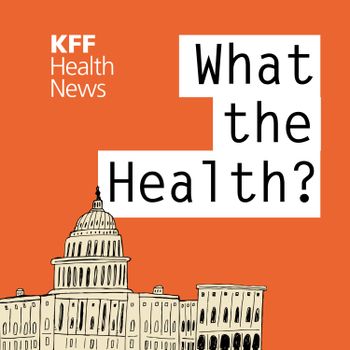Alzheimer’s Disease & Music Engagement: Quality of Life Economic Impact Analysis
Supported by AARP and the A. Barry Rand Fund of the AARP Foundation, Alzheimer’s Disease & Music Engagement: Quality of Life Economic Impact Analysis, is the second study in a series of economic analyses produced within the NeuroArts Blueprint Initiative that shows significant quality-of-life benefits to both individuals with Alzheimer’s disease and their caregivers.
Press Release: New NeuroArts Blueprint Analysis Finds Strong Return on Investment from Music Engagement
A new groundbreaking report by Deloitte Canada quantifies the economic benefit of improved quality of life for Alzheimer’s patients and their caregivers—showing a $2.40 return for every $1 invested annually.
Commentary: The Big, Beautiful Bill’s Ugly Future for Rural Health Care
Aspen Health Strategy Group Co-Chairs William Frist and Kathleen Sebelius outline the catastrophic impact that proposed Medicaid cuts would have on rural American health systems. Their insights, drawn from recent Aspen Health Strategy Group discussions with rural health leaders in June, highlight the severe threat to communities, hospitals, and vulnerable populations, urging bipartisan action against the “One Big Beautiful Bill Act.”
Live Session: Live From Aspen — Governors and an HHS Secretary Sound Off
From a special recorded session at Aspen Ideas: Health, hear three former governors—including a former HHS Secretary—explore how state and federal officials can collaborate to improve Americans’ health. KFF Health News’ Julie Rovner moderates this vital bipartisan discussion with Democrat Kathleen Sebelius, Republican Chris Sununu, and Democrat Roy Cooper.
Interview: Aspen Ideas: Health returns, featuring speakers on both sides of the aisle
Executive Director of HMS and Director of Aspen Ideas: Health, Ruth Katz, discusses how the programming for this year’s festival has been shaped to reflect the significant changes occurring across the healthcare industry. Click on the image to listen to the 5-minute interview in full!
Conference: Science & Society
On March 10, 2025, the Aspen Institute Science & Society Program and the MIT Press joined forces to host Building Trust in Science for a More Informed Future, a one-day conference attended by 250+ in-person guests in Cambridge, MA, and an additional 350+ virtual attendees. A high-level overview of recommendations and themes emerging from the panels, along with a more comprehensive review of the proceedings, is now available, as well as recordings of all the sessions.






